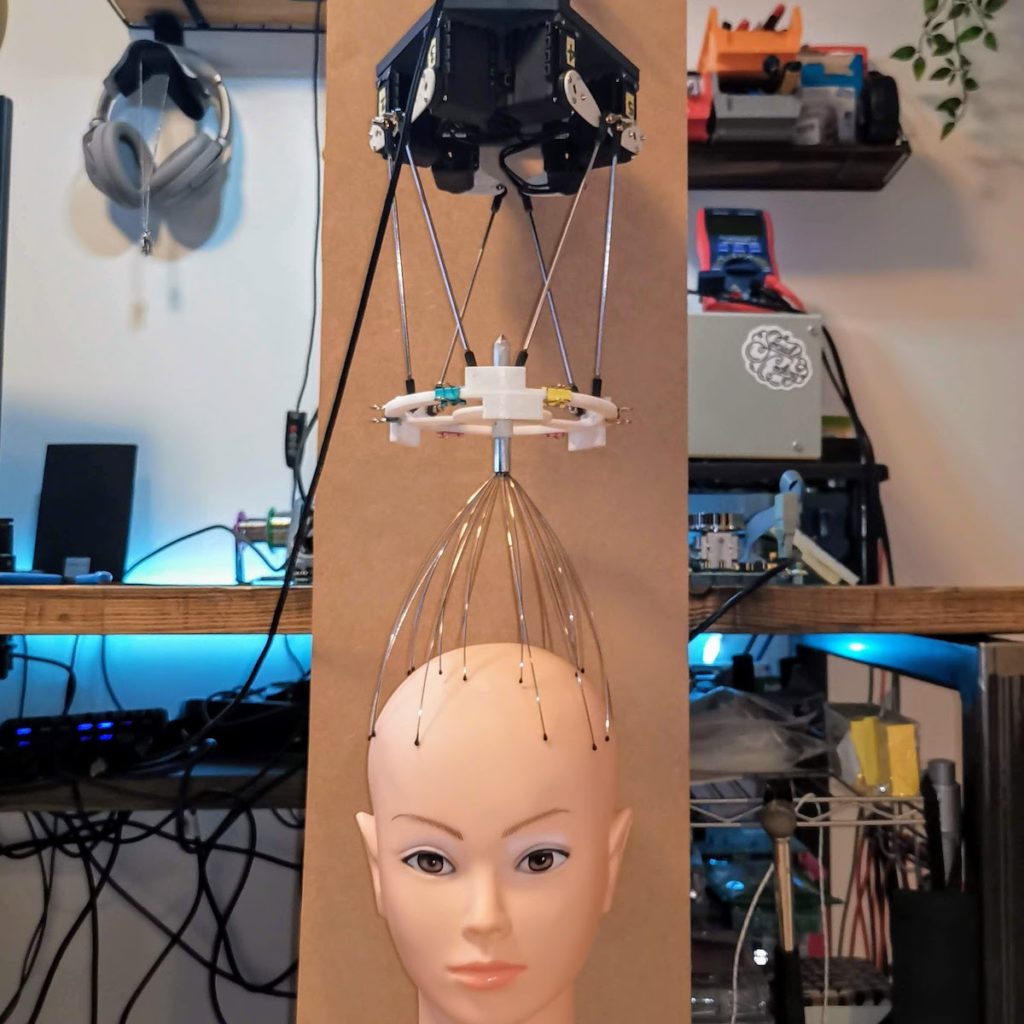— August 5th, 2022

Those cheap wire-arm head massagers are great at giving your scalp a nice, relaxing rub. But they’re handheld implements that force the user to either manipulate the massager themselves or talk a partner into performing the task. David McDaid decided that the experience would be much more pleasant if a robot took care of the hard work, so he built this Stewart platform head massager.
A Stewart platform is a dexterous manipulator often used with robotic end effectors or for orienting equipment. The standard setup requires six linear actuators, each with universal joints on both ends. The actuators mount between two plates in an arrangement that gives the top plate six degrees of freedom (DoF): pitch, roll, yaw, and linear movement in each of the three spatial axes. A Stewart platform is perfect for this application, because it lets the robot move the head massager in a variety of different ways that mimic manual movement.
McDaid created his own Stewart platform using an Arduino Mega 2560 board and six AX-12A servo motors in place of the usual linear actuators. The use of servos affects the kinematics to some extent, but not enough for it to be an issue in an application like this that doesn’t require much accuracy. McDaid designed his own custom PCB for this project, which is a shield for the Mega that simplifies the power connection. That power comes from a hobby LiPo battery pack with an XT60 connector. The mechanical parts, including the servo arms, frame, and massager mount, were all designed in Fusion 360 and then 3D-printed.
The finished robotic head massager is able to perform many different motions, ensuring total relaxation with minimal physical exertion.
Website: LINK


